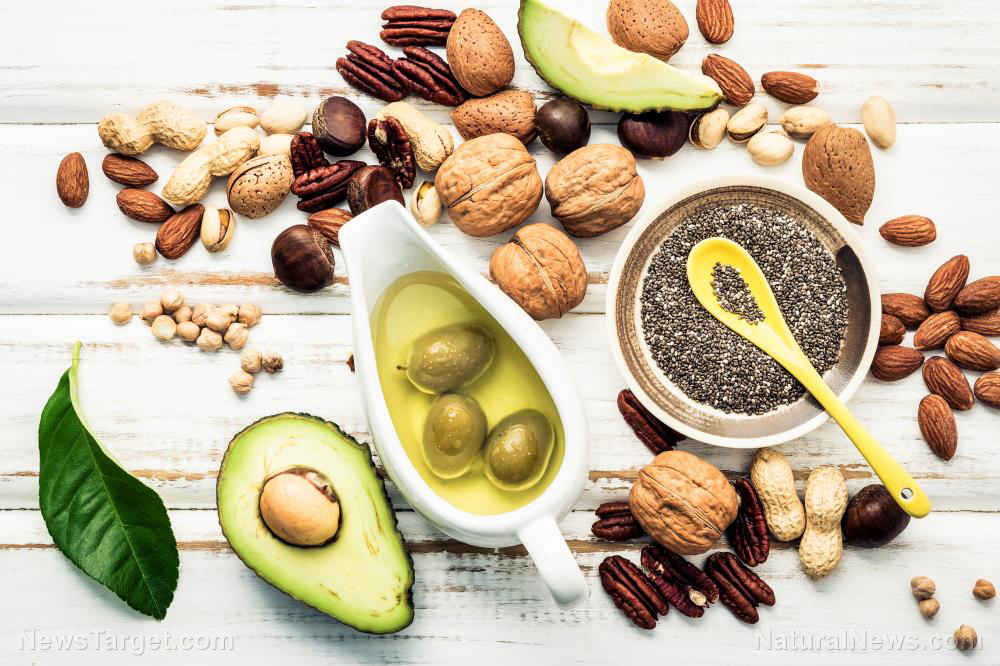Constantly having migraines? Supplement with these 3 nutrients to avoid getting them in the first place
11/15/2018 / By Mary Miller

Migraines are often confused with common headaches but the truth is migraines are far more severe and debilitating. They are characterized by a frequent, throbbing pain often on one side of the head but sometimes on both. These are often accompanied by visual or sensory changes known as “auras,” in which sufferers see flares of light or stars in their field of vision. Migraines can be caused by a number of reasons but they can also often be prevented with a handful of potent nutrients.
The onset of a migraine is often connected to a person’s sensitivity to certain triggers. These triggers can be linked to irritating lights, sounds, and smells. Other factors include stress, heat, smoke, and the use of certain medications. When these triggers cannot be avoided, there are natural remedies that can help alleviate the symptoms of an oncoming migraine, such as cayenne pepper and essential oils. (Related: Migraine headaches – how to cure and prevent them naturally.)
Nutrients to help avoid migraines
Don’t wait until you get a migraine to start eating foods rich in these nutrients. You won’t need a cure if you can prevent them from happening in the first place. Keep those migraines away with these essential vitamins and minerals:
- Riboflavin. Riboflavin is a water-soluble B-complex vitamin that plays a major role in cell metabolism. You may have heard the oft-repeated phrase in science class “the mitochondria is the powerhouse of the cell.” Some scientists theorize that migraines are caused by a deficiency in mitochondrial energy, resulting in the brain’s hypersensitivity to migraine triggers. Since riboflavin plays a role in converting food into energy, it can be used to increase the efficiency of that mitochondrial energy. Riboflavin can be found in whole grains, almonds, mushrooms, broccoli, and organic green leafy vegetables like spinach. You can also help relieve depression and improve your cognitive mood and function by consuming healthy amounts of riboflavin.
- Magnesium. Magnesium is an essential mineral that promotes bone health, stabilizes blood pressure, and helps maintain a healthy heart rhythm and nerve function. Some studies have found that people who frequently suffer from migraines often have lower levels of magnesium than those who don’t. In one study, scientists concluded that magnesium appeared to be effective at preventing migraines but that it took up to three months before the magnesium showed any signs of reducing migraine frequency. Foods that are rich in magnesium include black beans and lentils, pumpkin and squash seeds, almonds, yogurt, dark chocolate, bananas, figs, avocados, tuna, and dark leafy greens like spinach and chard. Magnesium oxide is often used for migraine prevention. It can be taken in pill form with a recommended dosage of 400 to 500 milligrams a day.
- Coenzyme Q10. Coenzyme Q10, or CoQ10 for short, is a vitamin-like compound that helps generate energy in your cells. It is a substance that your body naturally produces but production decreases as we age. In one study, researchers found that this compound may also have the power to reduce the frequency of migraines. Foods that are high in CoQ10 are oily and fatty fish like salmon, trout, herring, mackerel, and sardines, organ meats such as the heart, liver and kidney, and some muscle meats such as pork, beef, and chicken. You can also supplement your CoQ10 intake by eating organic whole grains, legumes such as soybeans, lentils and peanuts, fruits such as oranges and strawberries, and vegetables such as spinach, cauliflower, and broccoli.
If you want to learn more about nutrients and their potential health benefits, vist Nutrients.news.
Sources include:
Tagged Under: b vitamins, Coenzyme Q10, CoQ10, headaches, Magnesium, migraine triggers, migraines, mitochondria, mitochondrial energy, natural remedies, nutrients, pain relief, prevent migraines, prevention, Riboflavin, supplements, vitamin B-2


















